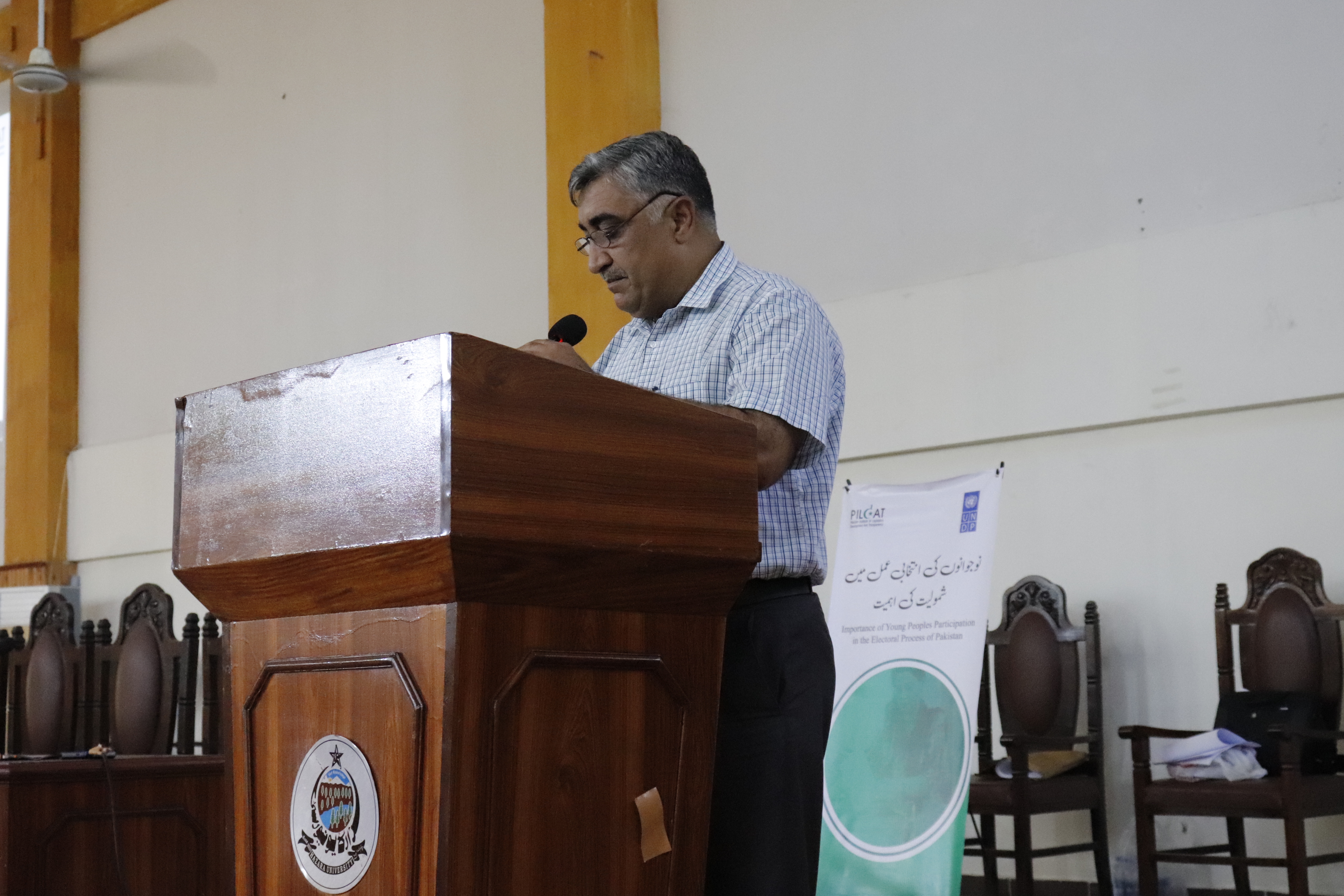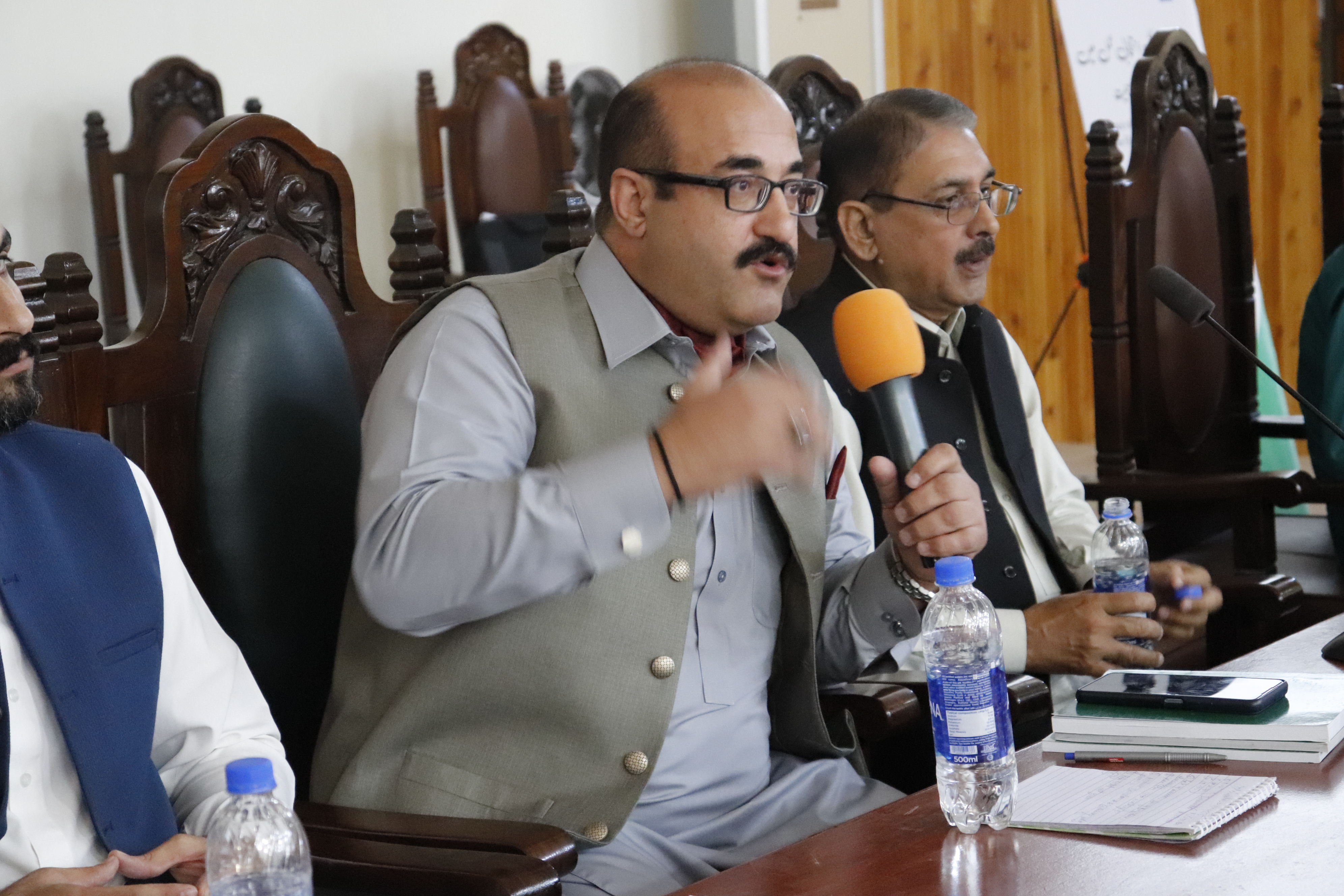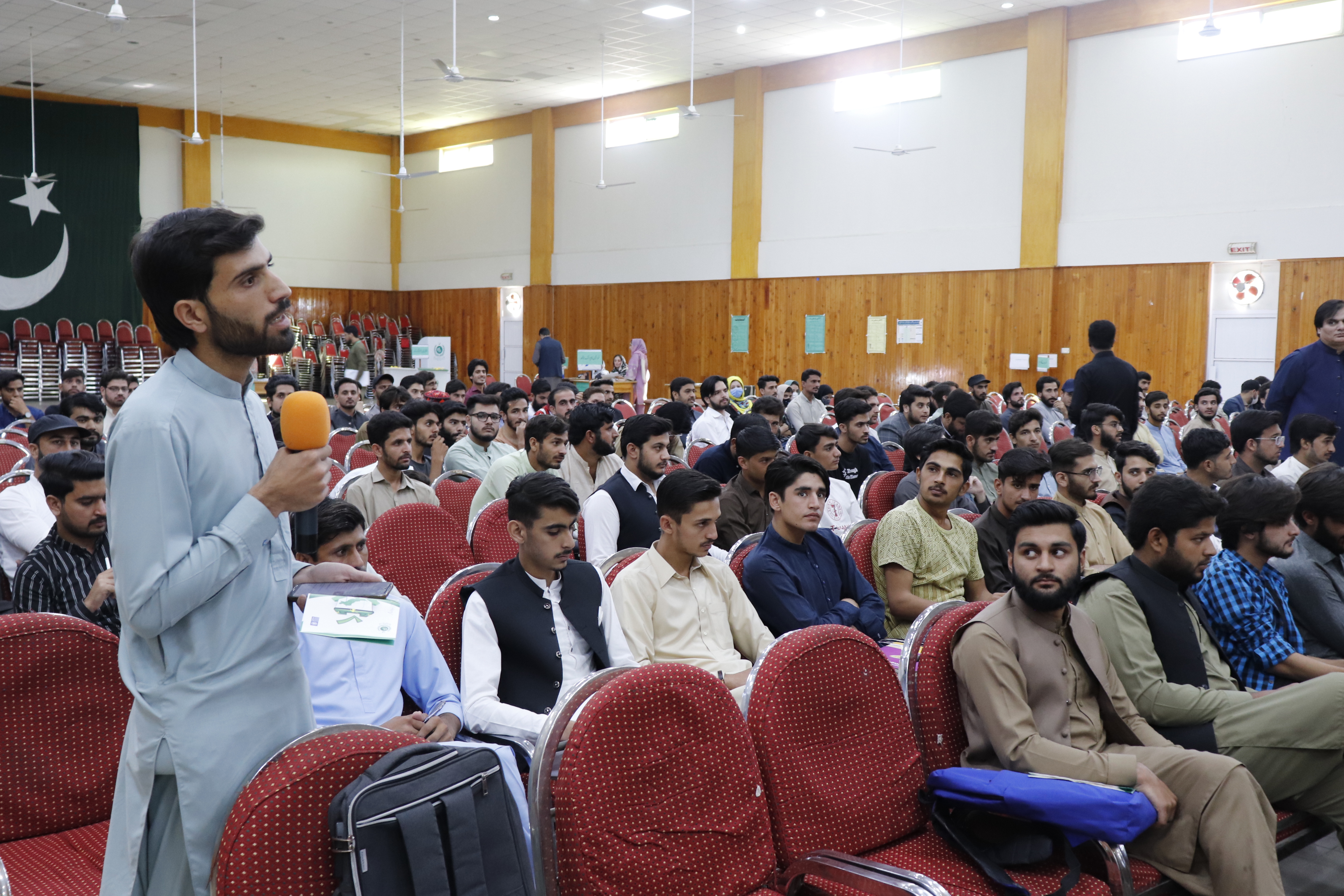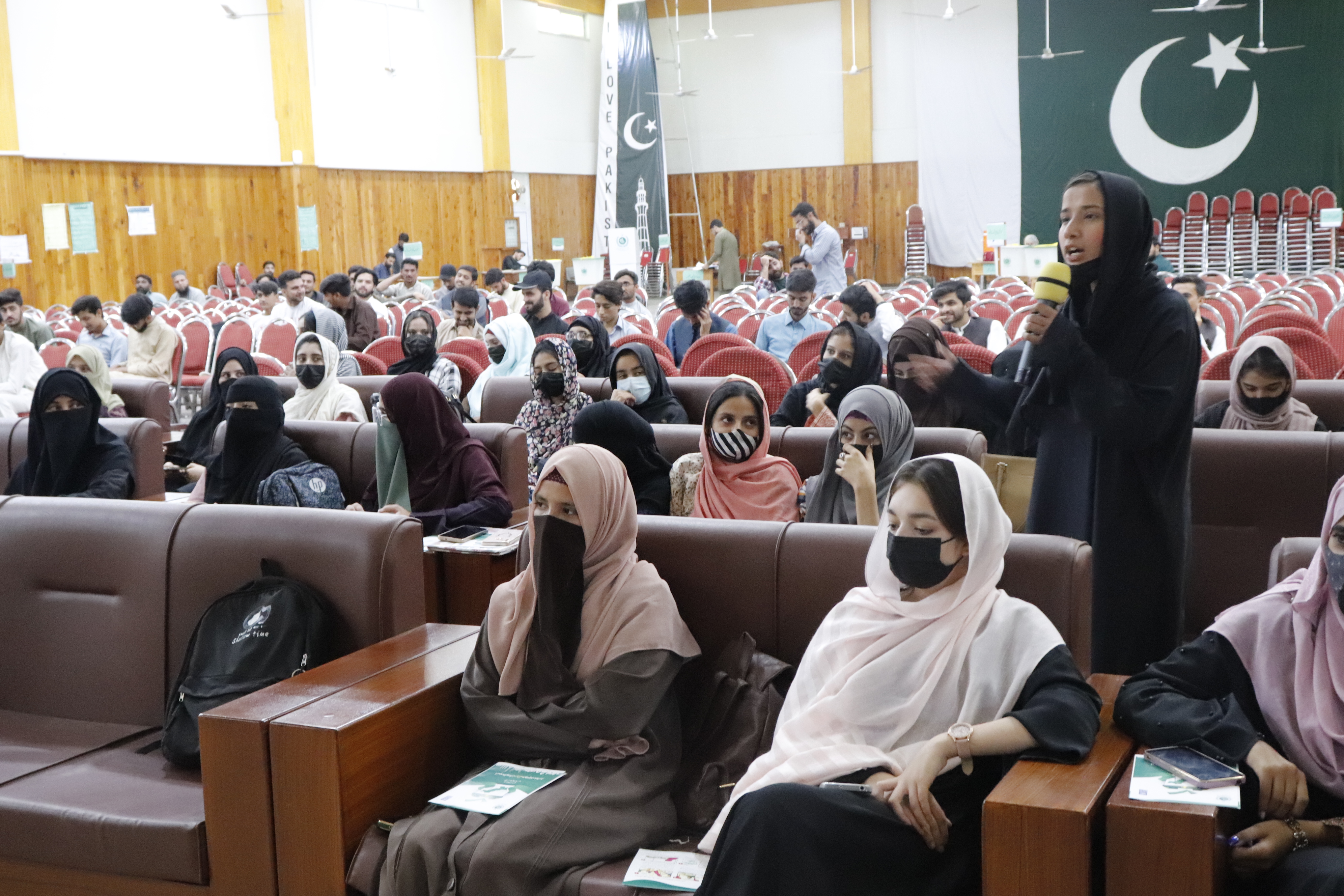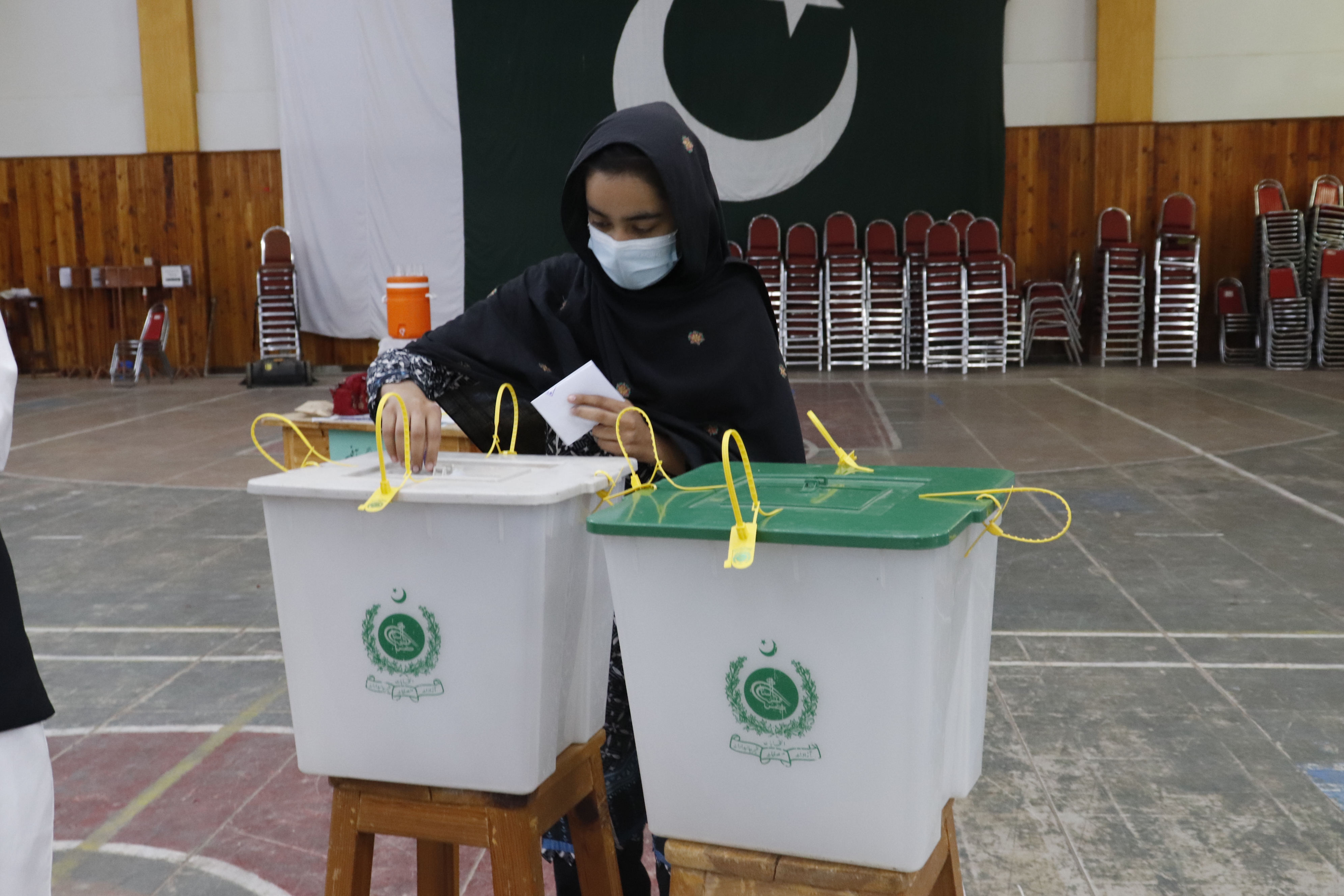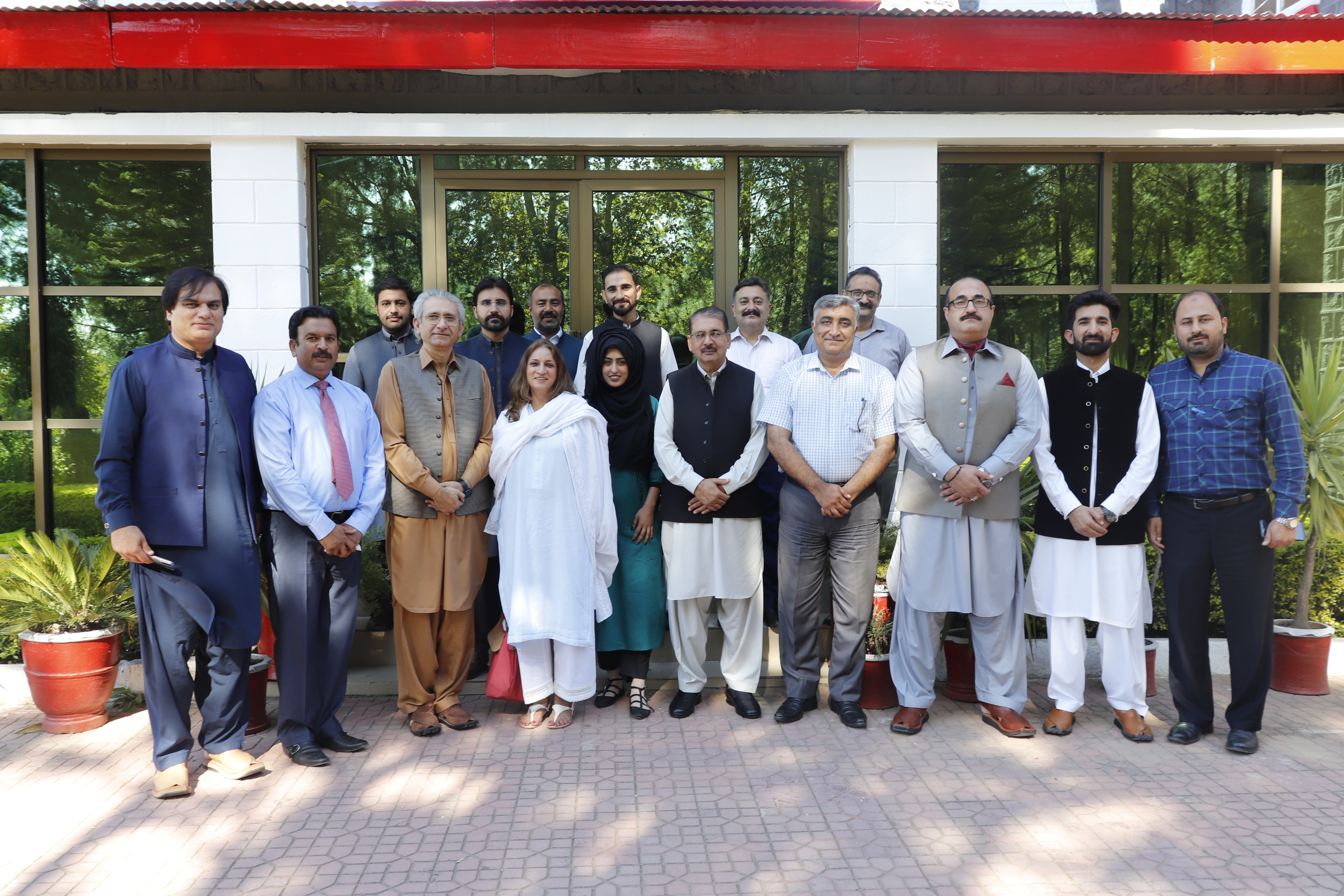
October 10: A consultative session with the students and faculty of the Hazara University Mansehra was held at their Main Hall on the importance of youth participation in the electoral processes of Pakistan at Hazara University Mansehra. Dr. Mohsan Nawaz Vice Chancellor Hazara University Mansehra, presided over the session.
Mr. Zulfqar Ahmed, Regional Election Commissioner, Abbottabad division, Mr. Ishaq Khan Marwat, District Election Commissioner, Mansehra represented the Election Commission of Pakistan (ECP) at the consultative session.
Dr. Mohsan Nawaz Vice-Chancellor Hazara University welcomed the participants and thanked PILDAT and UNDP for organizing the session on the Importance of youth’s participation in the electoral processes of Pakistan. He said that youth should not only participate in the electoral process but their participation in the political process of Pakistan is very important and should be made possible. It is important for political parties to actively engage the youth as key stakeholders inside the parliament. The absence of youth representation in parliamentary bodies and their exclusion from the election process may lead to a sense of demotivation among youth. The speaker placed further emphasis on the notion that democracy encompasses more than mere participation in electoral processes, highlighting the need for active engagement of youth in the democratic process.
Mr. Faheem Ahmed Khan, Senior Projects Manager PILDAT, welcomed the participants and introduced the panel members. The panel members included Mr. Zulfqar Ahmed Regional Election Commissioner, Abbottabad, Mr. Ishaq Khan Marwat, District Election Commissioner, Mansehra, Mr. Qaisar Jamal, Lecturer Public Policy, Mr. Shaheer Ahmed Khan, Youth Representative, Ms. Amna Sajjad, Youth Representative and Ms. Azqa Sajjad, Youth Representative.
During his presentation, Mr. Faheem Ahmed Khan discussed the demographic distribution of registered voters in Pakistan, highlighting that 45% of the total registered voters belong to the age group of 18-35 years. Additionally, he provided a comparative analysis of the voting behaviors shown by the young populations of Pakistan and India. Notably, the youth voter participation in India surpassed the overall voter turnout seen in the most recent Indian elections. The panelists agreed that low youth voter participation was a genuine problem, not a myth. They gave explanations for the low voter participation, one of which was that young voters did not trust the electoral system and hence did not participate in the election. Concerns were raised about the lack of confidence among young voters in the voting system. In addition, they emphasized the fact that young individuals had little knowledge of the procedures involved in registering to vote or casting a ballot.
Ms. Amna Sajjad, Youth Representative, expressed that the majority of Youth did not cast a vote due to a lack of awareness about the electoral process. She was of the opinion that this void could be filled by holding similar consultative sessions and exercises on a regular basis.
Mr. Shaheer Ahmed Khan, Youth Representative, while expressing his views suggested that Elections and the Electoral process should be made a part of the curriculum.
Mr. Zulfqar Ahmed Regional Election Commissioner, in his remarks, emphasized the need to inculcate civic sense among youth. Awareness about the rights and duties of young people should be provided with casting of ballot at the center stage, he opined. He also mentioned the efforts ECP was making to run awareness campaigns for the voters in general and youth in particular. He mentioned that political parties should also get involved in educating the voters.
Mr. Ishaq Khan Marwat, District Election Commissioner, Mansehra further elaborated on the efforts the election commission is making for voter awareness. He shared that awareness workshops and seminars are being held all over Pakistan to motivate the voters and especially guide them about the voting process.
The session was attended by a total of 209 students out of which 69 (33%) were young women and 140 (67%) were young men.
Following the panel discussion, students enthusiastically participated in a mock polling exercise and cast their votes. The students were eager to experience the democratic process firsthand and engage in meaningful discussions about the topics presented during the panel discussion. The mock polling exercise allowed them to actively participate in shaping their opinions and understanding the importance of voting in a democratic society.
